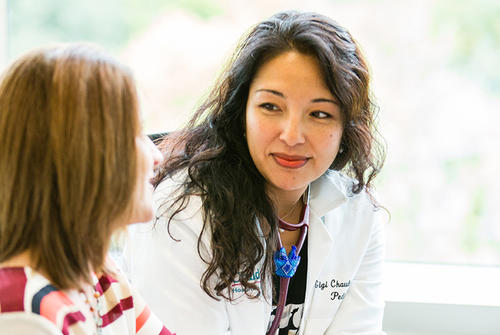
To fight racism and its potential influence on health, healthcare professionals must recognize, name, understand and talk about it. That education can begin during a professional’s earliest training.
A team of University of Minnesota researchers brought together a multiracial group of health professionals from across various fields to develop an anti-racism curriculum for first-year medical students at the University’s Medical School. The team recently published their findings about their process of developing the curriculum in a special issue of the journal Ethnicity & Disease.
The group used a methodology called Public Health Critical Race Praxis (PHCRP) that helps researchers remain attentive to issues of equity in their work.
In Phase I of the study, an interdisciplinary multiracial group of seven women with experience in public health, health care and community engagement developed small group exercises that focused on structural racism. With a goal to “center at the margins,” only one member of the group was White.
In Phase II, five White (primarily male) colleagues joined them to discuss racism and race in light of their initial curriculum. Working over a year’s time (January 2016 – December 2016) and using PHCRP, this larger group developed an anti-racism curriculum. Even though they were all professionals dedicated to advancing conversations on racial equity, it was not an easy task to come to consensus. They found that, even among themselves, racialized and socialized roles easily dominated.
“We learned that even with those truly, sincerely and genuinely committed to achieving equity, there is a high likelihood of replicating power structures that perpetuate systemic racism across all disciplines,” said Rachel Hardeman, School of Public Health assistant professor and lead author of the study. “The field of public health, for example, has a long history of working with marginalized communities to promote the health of all communities, but it also has a complicated and problematic relationship to race. PHCRP is critical for moving all health professionals towards achieving health equity in their work.”
Participants from Phase I described the early meetings as “powerful,” allowing them to “bring their full selves” to a project that brought together people who are often marginalized in their professional environments. In Phase II, which included White colleagues, the dynamics shifted. Phase I participants noted that “[our] voices… became quieter…” and “I had to put on my armor and fight in those later meetings.”
“Although today’s medical students are more aware of the influence of racial stratification on health outcomes, most medical schools do not address racism in their curricula, and when they do, they often focus only on implicit bias,” said Brooke Cunningham MD, PhD, assistant professor in the Department of Family Medicine and Community Health at the University of Minnesota Medical School, and principal investigator for the study.
The researchers concluded that the process of employing Public Health Critical Race Praxis in the development of an intervention about racism in medicine led to new insights on what it means to discuss racism among people who are marginalized and people with privilege. Conversations in each phase yielded new ideas and strategies to advance a conversation about racism in health care.
The University of Minnesota Office of the Vice President for Research (OVPR) funded the study through a Serendipity Grant.
- Categories:
- Health




